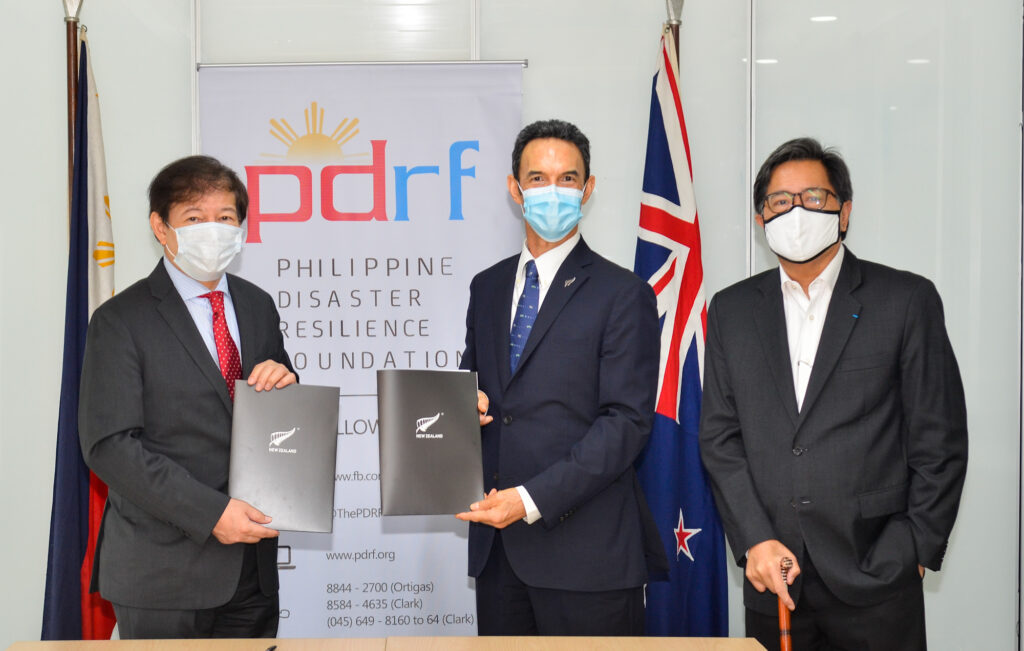17 SEPTEMBER 2020, MANILA—Continuing its efforts to strengthen the Philippine health system and its pandemic response and recovery capacities, the Philippine Disaster Resilience Foundation (PDRF) signed an agreement with the New Zealand Ministry of Foreign Affairs and Trade Aid Programme to launch Project K3 or Kalinga para sa Kalusugan ng Komunidad, which brings together the technical expertise and resources of the private, public, and humanitarian sectors to help fifteen local government units across Luzon, Visayas, and Mindanao flatten the curve.

In photo (L-R): PDRF President Butch Meily, New Zealand Ambassador to the Philippines Peter Francis Tavita Kell, and PDRF Chief Resilience Officer Bill Luz
“COVID-19 continues to challenge and overwhelm health systems and communities across the world, including the Philippines. These challenges are deeply felt by our frontliners and healthcare workers. This project, PROJECT K3: Kalinga para sa Kalusugan ng Komunidad, is New Zealand’s contribution to strengthening local health capacities to address COVID-19 immediate and future needs,” said New Zealand Ambassador to the Philippines Peter Francis Tavita Kell.
In collaboration with key international and local health organizations, Project K3 will target service delivery, health workforce, and health information system gaps by training a total of 10,000 health system stakeholders across the Philippines, distributing 5,000 personal protective equipment, developing e-learning courses and publications for healthcare workers, health facilities, and local government units (LGUs), and coming up with an online resource mapping tracker that will help partner LGUs plan and respond better to COVID-19.
“This innovative program is an important step on the road to making the country safer and defeating COVID-19. We’re grateful to the people of New Zealand for their invaluable help,” said PDRF President Butch Meily.
“This pandemic demonstrates how important our public health systems are, especially in our cities and municipalities. We are grateful for the support of the Government of New Zealand for enabling us to reach out to different LGUs across the country so we can contribute to strengthening our public health capacity. Aside from COVID-19, our local health offices still need to be able to respond to other diseases and health emergencies,” added PDRF Chief Resilience Officer Bill Luz.
The initiative, which will officially kick off in October and will go on until 2021, is part of the disaster risk reduction and management partnership between PDRF and the New Zealand Ministry of Foreign Affairs and Trade Aid Programme, which also supported the Brown University – PDRF Humanitarian Field Program held in September 2019.